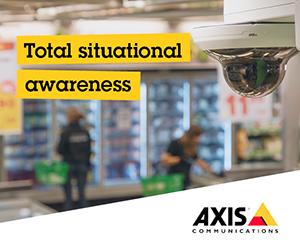RETAIL ENVIRONMENT
'Hard' luck for business losses
Hard disk drive crashes on desktop and laptop PCs continue to be responsible for the highest volumes of data loss by UK businesses and home users, according to new research from Kroll Ontrack. Two thirds (67%) of respondents said that HDD crashes caused data loss, compared with 14% who blamed human error and 10% who said software failure was responsible.
Despite the recent rise in popularity of SSD technology, only 13% of UK users reported data loss from SSDs, far less than from traditional hard drives (74%), but much more than from smartphones/tablets 5% or RAID servers (6%).
The consequences of data loss can be extremely serious, with 57% of UK respondents saying they had lost personal data, 27% saying they had lost business-related data and 11% reporting that data loss had disrupted them or their company from providing a product or service to their customers.
On a global level, when asked about the cause of their most recent data loss, 66% (compared to 29% in 2010 and 56% in 2005) of the 1,066 surveyed across North America, Europe and Asia Pacific, cited a hardware crash or failure, followed by 14% claiming human error (compared to 27% in 2010). Software failure ranked as the third most common cause of data loss, with 6%.
More home users (13%) than business users (10%) said they had lost data from SSDs, suggesting that while SSDs are seen as beneficial by home users because of their small form factor/low cost and fast speed of operation, they can still be susceptible to data loss.
The impact of data loss on businesses around the world and their customers is significant: more than a quarter (27%) of global businesses said that they have experienced disruption to critical business processes or to the provision of products or services to customers because of data loss.
Interestingly, around 7% of global users said that they had lost business data from their home, underlining the fact that security perimeters now extend far beyond the four walls of a company and into employees’ homes and on their mobile devices.
Paul Le Messurier, Programme and Operations Manager, Kroll Ontrack UK: “Whether you have an SSD or HDD, the technology will eventually fail; it is just a matter of when. HDDs are still the most prevalent drive and this is why HDD disk crashes have and continue to be the most common cause of data loss.
“The key to avoiding such failure is to keep your drives in good health, which includes defragging computers, checking their storage capacity, and running antivirus software as well as considering hard drive monitoring software. Beyond good health practices, businesses and home users should have working redundancies, such as a backup device or service in place, and a continuity plan that is current and accessible in the event of a loss.”





